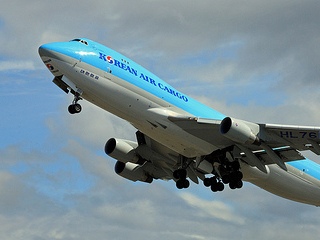 Air cargo players will have to focus on improving their value-added services if they want to steer the industry into brighter skies in 2014, says the International Air Transport Association (IATA).
Air cargo players will have to focus on improving their value-added services if they want to steer the industry into brighter skies in 2014, says the International Air Transport Association (IATA).
Airfreight volumes registered a 1.4 percent growth in 2013 compared to 2012. The industry made very slow progress during the first half, but showed steadily improving performance in the latter half. Capacity grew faster than demand at 2.6 percent and load factors were weak at 45.3 percent.
“2013 was a tough year for cargo. While we saw some improvement in demand from the second half of the year, we can still expect that 2014 will be a challenging year,” said Tony Tyler, IATA’s director general and CEO.
He added: “World trade continues to expand more rapidly than demand for air cargo. Trade itself is suffering from increasing protectionist measures by governments. And the relative good fortunes of passenger markets compared to cargo make it difficult for airlines to match capacity to demand.”
Noting that the dynamics in the air cargo industry are evolving, he stressed that air cargo’s basic value proposition remains the same. “Customers still need speed, quality, reliability and efficiency. And we need to get better at delivering it through improved technology and modern processes.”
In December 2013, global tonnage grew 1.8 percent year-over-year. This continues the positive trend in the latter half of 2013, though it was down from the November figure of 6 percent. Capacity grew by 3.6 percent, taking load factor down 0.8 percentage points on a year ago, to 46.3 percent.
Asia-Pacific carriers saw cargo activities fall 0.3 percent in December and shrink by 1 percent in 2013. The economic performance of the region was “patchy,” as was growth in trade volumes, although these have picked up in recent weeks. Despite shrinking demand, capacity grew by 0.8 percent in 2013.
Middle Eastern and Latin American carriers reported the strongest growth in demand last year.
“This will be a year of change for air cargo. A key measure of success will be in passing the tipping point on e-air waybill implementation. That will lay the foundation for further improvements for a modern paperless air cargo industry that can only be achieved by aligning all stakeholders—including governments—in a common vision,” said Tyler.
Photo: Alaskan Dude




